[Summary: why should you be involving young people? – And once you know your reasons – what impact do those reasons have on the nature of their involvement?]
Can you hold an event about children and young people without children and young people being there?
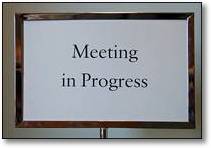 Well, of course you can, but should you? Many people in youth participation might say young people must be involved in all events about them – the idea that from a young person's perspective 'You can't talk about us without us'. Personally I think we should start from an assumption that young people should be involved, and should have to argue against it if neccessary, rather than always having to argue for young people's involvement. However, when we do argue for young people's involvement – the reasons we give for youth involvement matter – and have an impact on the selection of young people to be involved and the role they should play.
Well, of course you can, but should you? Many people in youth participation might say young people must be involved in all events about them – the idea that from a young person's perspective 'You can't talk about us without us'. Personally I think we should start from an assumption that young people should be involved, and should have to argue against it if neccessary, rather than always having to argue for young people's involvement. However, when we do argue for young people's involvement – the reasons we give for youth involvement matter – and have an impact on the selection of young people to be involved and the role they should play.
Below I'll offer three candidate reasons for involving young people – and I'll sketch out what I think their upshot might be for the nature of young people's involvement that is suitable in a particular context. This is very much a work in progress, and should not be taken as a definitive set of views:
Three reasons for involving young people and their practical consequences…
1) To address the oppression of young people: rights and justice
Far too often young people are excluded either simply because they are young or because their preferred methods of working and communicating do not fit neatly into formal 'adult' structures.
Many of the decisions that are taken about young people's lives do not involve them. Where adults can often take control and reject decisions they do not agree with – young people often do not have such opportunities.
Young people have a right under Article 12 of the UN Convention on the Rights of the Child to be involved, listened to, and to have their views taken into account – in decisions that affect them.
If we are serious about tackling the general exclusion and oppression of young people – and the particular exclusion of some groups of young people – we have to lead by example and to include young people as partners in all we do.
The Upshot
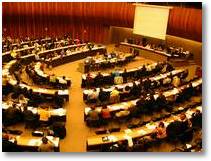 Recruit young people most affected by the decisions you are making.
Recruit young people most affected by the decisions you are making.
Provide extensive support for these groups and design inclusive processes throughout your events and engagement that bring adults and young people onto a 'middle ground' where they can work together.
Young people participate as 'experts by experience' in their own lives.
The process should test adult ideas against young peoples concrete stories about their own lived experience.
If it is tricky for a particular group to participate directly – support other young people (see Reasons 2) to act as advocates on their behalf.
2) Making better decisions: prudential and practical
What may sound like the idea solution from an adult's perspective may not be from a young person's perspective because:
1) It's very tricky to remember what it is like to be young and undergoing rapid processes of cognitive, physical, social and emotional development;
2) Youth is a rapidly changing social phenomena – and the norms and practices which should govern 'interventions' in young people's lives need to be constantly renegotiated with young people now;
3) It's a very different picture from the 'inside' as opposed to from the 'outside' – and the dynamics of how a politic of programme is implemented could make or break it;
Involving the voice, views, responses and ideas of young people will enable us to make better policy and implement better practice in better ways.
The Upshot
Recruit a diverse group of young people with an understanding of the decisions and issues you are working on.
Provide training and support for young people to understand the processes you are working through and the challenges you are facing. Seek to make the processes you are working through as accessible as possible (e.g. avoid jargon, use visual methods, keep things to the simplest level you can whilst still engaging with the complexity of the challenges you face).
Young people participate as those offering 'insights' into the contemporary lived experience of young people.
Work with these young people as partners and 'critical friends' helping to develop your idea further.
OR (Combining this with Reason #1)
Resource (offer training, teambuilding time etc.) the group of young people you are working with and actively hand power over to them. For example, power to decide on funding and to act as commissioners or co-commissioners.
3) Developing fresh talent: forward looking and developmental
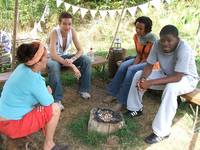 Creativity is not something people learn, it something they are trained out of.
Creativity is not something people learn, it something they are trained out of.
Providing opportunities for young people to participate addresses the inbuilt 'age discrimination' in the common 'seniority' requirements for participation in many conferences and formal processes.
Allowing young people to gain positive experiences in a formal arena of sharing their views, ideas, experience and innovation builds their capacity to be realistic and practical change makers in their own communities – linked into intergenerational networks that can support them to make a difference.
The Upshot
Recruit young people with existing skills and expertise in the area you are focussing on.
Offer them some additional support to understand the context and structure of the process they will be involved in – and offer opportunities for them to reflect on learning from the process.
Young people participate as equal partners in the process – with their voice no more or less listened to than anyone else present.
Summary:
So to return to the question in the opening: Can you hold an event about children and young people without children and young people being there?
I'd love to hear your thoughts…

 The Social Source Commons model allows anyone to create a 'personal toolbox' (see mine here) of open source tools that they use – and to see what others have in their toolbox. I can assess the value of a tool by seeing who else is using it. Do they use other resources like me? What comments have people left on a particular tool? How have they rated it? It's a context rich way of finding out if a resource can cut it or not.
The Social Source Commons model allows anyone to create a 'personal toolbox' (see mine here) of open source tools that they use – and to see what others have in their toolbox. I can assess the value of a tool by seeing who else is using it. Do they use other resources like me? What comments have people left on a particular tool? How have they rated it? It's a context rich way of finding out if a resource can cut it or not.

 Yesterday evening I took part in a 'Peoples Commission' as part of the
Yesterday evening I took part in a 'Peoples Commission' as part of the 
 (The Citizen Speak process also includes a
(The Citizen Speak process also includes a  Well, of course you can, but should you? Many people in youth participation might say young people must be involved in all events about them – the idea that from a young person's perspective 'You can't talk about us without us'. Personally I think we should start from an assumption that young people should be involved, and should have to argue against it if neccessary, rather than always having to argue for young people's involvement. However, when we do argue for young people's involvement – the reasons we give for youth involvement matter – and have an impact on the selection of young people to be involved and the role they should play.
Well, of course you can, but should you? Many people in youth participation might say young people must be involved in all events about them – the idea that from a young person's perspective 'You can't talk about us without us'. Personally I think we should start from an assumption that young people should be involved, and should have to argue against it if neccessary, rather than always having to argue for young people's involvement. However, when we do argue for young people's involvement – the reasons we give for youth involvement matter – and have an impact on the selection of young people to be involved and the role they should play. Recruit young people most affected by the decisions you are making.
Recruit young people most affected by the decisions you are making. Creativity is not something people learn, it something they are trained out of.
Creativity is not something people learn, it something they are trained out of. In response to a number of questions I've had recently about how Social Networking sites could be used for youth participation and engaging young people in local democratic dialogue, I've been exploring a range of different options. To capture my learning, I though I would try and write up my explorations in the form of a number of strategic 'recipes'.
In response to a number of questions I've had recently about how Social Networking sites could be used for youth participation and engaging young people in local democratic dialogue, I've been exploring a range of different options. To capture my learning, I though I would try and write up my explorations in the form of a number of strategic 'recipes'.

 This can mean:
This can mean: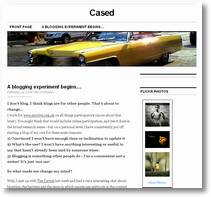 Last week I met up with Alice Casey from
Last week I met up with Alice Casey from  =
=
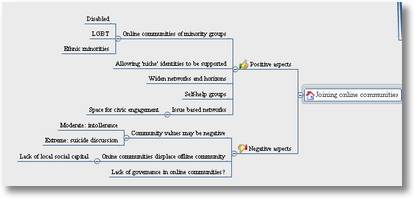
 And the answer to the straight question of 'Should our local authority be on my space of Facebook?' turns out to be a very qualified definitely maybe.
And the answer to the straight question of 'Should our local authority be on my space of Facebook?' turns out to be a very qualified definitely maybe.

 Q: If 60% of your target population for an activity or project are going to a particular space, and you can advertise there for free… would you do it? What would you have to think about in making that decision?
Q: If 60% of your target population for an activity or project are going to a particular space, and you can advertise there for free… would you do it? What would you have to think about in making that decision?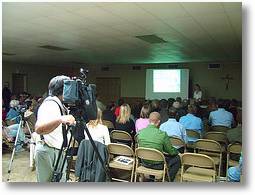 Joining a group on a Social Networking Site is a very quick action. Groups can have a far better 'sign up' rate that an e-mail newsletter might (4). And the informal quick message to group members may be received better than the carefully edited and formatted eat-mailing. But a group is also usually a space for dialogue.
Joining a group on a Social Networking Site is a very quick action. Groups can have a far better 'sign up' rate that an e-mail newsletter might (4). And the informal quick message to group members may be received better than the carefully edited and formatted eat-mailing. But a group is also usually a space for dialogue. Question your hesitancy. Understand your reasons. Check against your aim and mission.
Question your hesitancy. Understand your reasons. Check against your aim and mission.